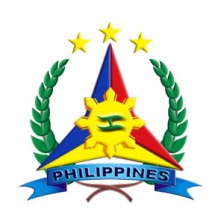
Instead of guns, tanks, and bullets, these youth from ethnic groups all over the country will be armed with their the appreciation of different cultures, the love for nature, and their rich ethnic heritage in the war against war itself.
The AFP organized the first ever National Youth Leadership Summit (NYLS) last October 28-30, where more than 600 participants of different ethnic backgrounds from all over the country participated in cultural exchange, environmental conservation, and community development activities.
General Jessie Dellosa, AFP Chief of Staff, said that the NYLS was “our invitation for all Filipinos to take an active part in winning the peace for our country and [for] succeeding generations.”
“We believe that everyone—the military, the civil society, academe, and even the youth—share a common responsibility for this effort. We are all in this Bayanihan, including the youth,” Dellosa said.
“Bayanihan” is the Filipino cultural practice of coming together to solve problems in the community. It is also the name of the government’s Internal Peace and Security Plan, with the aim of involving various stakeholders in the quest for peace.
The country has been fighting several wars from various groups over several decades. The most prominent among them are the New People’s Army, a communist rebel group that is more than 40 years old and the Moro Islamic Liberation Front, an Islamic secessionist group that has recently signed a peace framework agreement with the government.
The NYLS that was held in Davao City convened the members of the regional “Youth for Peace Movement” and organized it into the National Youth Alliance for Peace (NYAP) with Leslie Bangoy elected as the national president.
“The regional Youth for Peace Movement, composed of graduates of local youth leadership summits conducted by the AFP, are already active in youth empowerment and community development activities,” Colonel Arnulfo Marcelo Burgos, AFP spokesman, said in their statement.
Dellosa said that they brought together the youth all over the country in order for them to get to know each other and “awaken [their] social and civic consciousness through activities that advocate peace.”
“The youth leadership summit began as an initiative to reach out to young and potential leaders and to provide an opportunity to the youth from different localities to get to know each other under an atmosphere of self-discovery, cooperation and team work,” Dellosa said.
Culture and Nature
The participants that were from different ethnic backgrounds engaged in cultural exchange during the summit as well as nature appreciation and environment conservation.
During their “Solidarity Night” held on the second night of the summit, participants from the Kalinga Province presented the traditional Tadek and Salip Dance that was performed during celebrations in their region.
Lieutenant General Jorge Segovia, Commander of the Eastern Mindanao Command, cited Davao’s rich cultural mix as the perfect background for the participants to share their different cultural heritage.
“Davao City has been home to different groups of people and has witnessed the convergence of different cultures for many centuries now. This will serve as a very suitable pretext for the youth as they learn the value of respect and understanding,” Segovia said.
Lany Mosing, Tabuk City YLS Batch three Vice President, said that the NYLS helped them introduce “the rich culture of the people of Kalinga Province” to other participants.
“Through this summit, we learn to socialize and interact with other groups of people without discrimination, a quality that develops the youth to become successful leaders,” Mosing said.
Participants also developed their appreciation for nature by visiting the Monfort Bat Colony “that holds the Guinness World Record for most bats in conservation.” They also went to the Davao City Crocodile Park and the Philippine Eagle Foundation to learn about the country’s rich biodiversity.